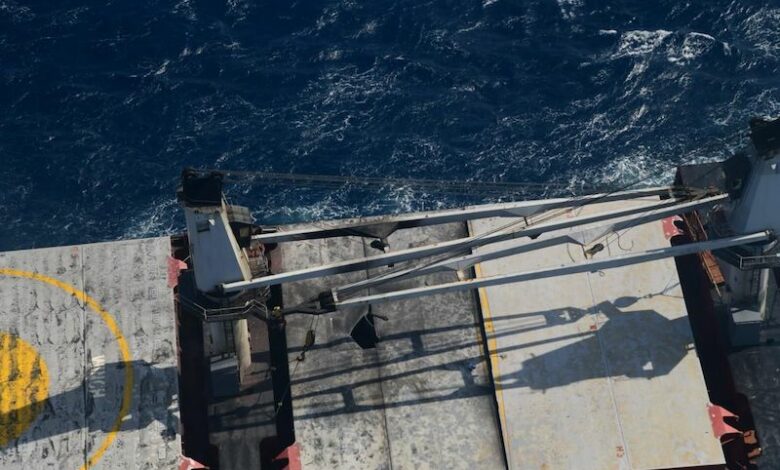The mental scars left by Red Sea attacks

Charles Watkins, CEO of Mental Health Support Solutions, has recently returned from a vessel visit where he supported crew whose vessel was attacked by rockets through the Red Sea. Here he recounts what he saw.
As the CEO and clinical psychologist at Mental Health Support Solutions (MHSS), I recently had the sobering experience of conducting a vessel visit following a harrowing incident at sea. The vessel, attacked by several rockets that narrowly missed it by mere meters, plunged the crew into a state of acute distress and vulnerability.
During the visit I witnessed the aftermath of the attack firsthand. While travelling through the Red Sea, the ship’s escort vessel was forced to move away at the last minute, just before two rockets took aim. The captain swiftly executed an emergency drill with the crew directed to seek refuge in secure areas of the vessel. Fortunately, the rockets missed. However, despite these success of these precautions, the atmosphere onboard was one of unease and helplessness. Crew were left feeling shock and terror, leaving many struggling to cope with the traumatic events unfolding before them.
It was only approximately two hours later when the captain gave the all-clear signal, but for many crewmembers, the psychological scars have remained long after the immediate danger has passed. While some were able to stabilise within a week or two, others required further assistance and even disembarkation from the vessel.
One particular aspect of this ordeal was that many crewmembers understandably expressed a reluctance to travel back through those dangerous waters. The fear instilled by the attack was so profound that there was a general consensus among the crew that they would sign off rather than face the risk again.
Adding to the complexity of the situation was the inability of the military escort vessel to provide assistance during the attack, leaving the crew feeling vulnerable and unprotected. This further exacerbated the sense of fear and uncertainty gripping the vessel.
Equally distressing was the impact on the families of the seafarers, who were understandably distraught upon seeing the events unfold on the news. Their worry and anxiety only served to underscore the urgent need for comprehensive support systems to encompass both seafarers and their families.
In my role at MHSS, I am acutely aware of the critical importance of prioritising the psychological wellbeing of those who dedicate their lives to maritime service. It is imperative that we not only address the immediate aftermath of traumatic events but also implement proactive measures to mitigate the risk of future incidents and bolster the resilience of seafarers.
This necessitates a multifaceted approach, encompassing robust security measures, comprehensive mental health support, and proactive strategies to engage and empower seafarers in safeguarding their own well-being. Moreover, it demands collaboration and coordination across industry stakeholders, governmental agencies, and mental health professionals to ensure a unified response to the unique challenges faced by seafarers.
Let’s acknowledge the insights gained from this challenging ordeal and collaborate to establish a safer, more nurturing atmosphere for seafarers and their loved ones. It’s only through united efforts that we can assist seafarers during these trying times, which is why MHSS is providing pro bono assistance to crew affected by voyages through the Red Sea. Prioritising mental health and aiding crewmembers in their time of crisis is crucial.

I am not a shrink doc. but from experience know, that reasonable war bonus is the best medicine and takes care of all PTSD cases. Just try this magic and I can bet a bottle of single malt one will experience all smiling faces upon the next inspection.